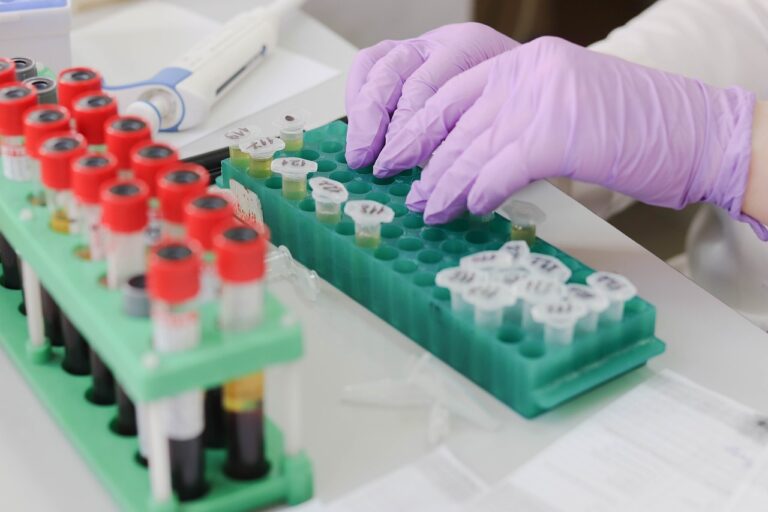Understanding the role of cultural taboos in hindering access to infectious disease prevention and treatment services: 11xplay sign up login password, Laser247 com, Tiger exchange login
11xplay sign up login password, laser247 com, tiger exchange login: Nephrology Therapies: Options for Managing Kidney Diseases
As the kidneys play a crucial role in filtering waste and excess fluids from the body, any damage to these vital organs can lead to a range of health issues. From chronic kidney disease to kidney stones and infections, there are various kidney diseases that require proper management to prevent further complications. Nephrology therapies offer a range of options for treating these conditions and helping patients maintain kidney health. In this article, we will explore some of the common therapies used in nephrology and how they can benefit individuals with kidney diseases.
Medication Therapy
One of the primary treatment options for kidney diseases is medication therapy. Depending on the specific condition, patients may be prescribed medications to manage symptoms, control blood pressure, reduce inflammation, or prevent complications. For example, individuals with chronic kidney disease may be prescribed medications to lower their cholesterol levels and protect their kidneys from further damage. Similarly, those with kidney stones may be given medications to help break down the stones and ease their passage.
Dialysis
Dialysis is a common treatment for individuals with advanced kidney disease or kidney failure. This procedure involves using a machine to filter the blood and remove waste and excess fluids from the body, replicating the function of the kidneys. There are two main types of dialysis: hemodialysis, which uses a machine to filter the blood outside the body, and peritoneal dialysis, which involves using the lining of the abdomen to filter the blood. Dialysis helps individuals with kidney diseases maintain their overall health and quality of life.
Kidney Transplant
For individuals with end-stage renal disease, a kidney transplant may be recommended as a treatment option. During a kidney transplant, a healthy kidney from a donor is surgically implanted into the recipient’s body to replace their failing kidneys. This procedure offers the best chance for a cure and improved quality of life for individuals with kidney diseases. However, finding a suitable donor and undergoing transplant surgery are complex processes that require careful consideration and planning.
Nutritional Therapy
Nutritional therapy plays a crucial role in managing kidney diseases and supporting overall kidney health. Individuals with kidney diseases may be advised to follow a specific diet that restricts certain nutrients, such as sodium, potassium, and phosphorus, to reduce the workload on the kidneys. A dietitian or nephrologist can help patients create a nutrition plan that meets their individual needs and supports their kidney function. In some cases, nutritional supplements may also be recommended to address deficiencies and optimize kidney health.
Lifestyle Changes
In addition to medical treatments, lifestyle changes can also help individuals with kidney diseases manage their condition and improve their overall health. Adopting a healthy lifestyle that includes regular exercise, stress management, smoking cessation, and adequate hydration can benefit kidney function and reduce the risk of complications. Patients are encouraged to work closely with their healthcare team to develop a comprehensive treatment plan that addresses both medical and lifestyle factors.
Alternative Therapies
In recent years, alternative therapies have gained popularity as complementary treatments for kidney diseases. These therapies, including acupuncture, herbal medicine, and mindfulness practices, are believed to promote kidney health and alleviate symptoms associated with kidney diseases. While more research is needed to validate the effectiveness of these alternative therapies, some patients may find them beneficial in conjunction with traditional nephrology treatments.
FAQs
Q: Can kidney diseases be cured?
A: While some kidney diseases can be managed effectively, certain conditions may progress to the point where a kidney transplant is required for a cure. Early detection, proper treatment, and lifestyle modifications can help individuals with kidney diseases maintain their kidney function and overall health.
Q: What are the risk factors for kidney diseases?
A: The risk factors for kidney diseases include diabetes, high blood pressure, obesity, smoking, family history of kidney disease, and aging. Individuals with these risk factors are encouraged to undergo regular screenings and adopt a healthy lifestyle to prevent kidney diseases.
Q: How can I support a loved one with kidney disease?
A: Supporting a loved one with kidney disease involves providing emotional support, assisting with medication management, accompanying them to medical appointments, and helping them adhere to their treatment plan. It’s essential to communicate openly and compassionately with your loved one and involve them in decision-making regarding their care.
In conclusion, nephrology therapies offer a range of options for managing kidney diseases and supporting overall kidney health. From medication therapy and dialysis to kidney transplants and lifestyle modifications, there are various treatment approaches available to help individuals with kidney diseases lead healthy and fulfilling lives. By working closely with healthcare providers and adopting a comprehensive treatment plan, patients can effectively manage their condition and optimize their kidney function. Remember that early detection and proactive management are key to preventing complications and improving outcomes for individuals with kidney diseases.







